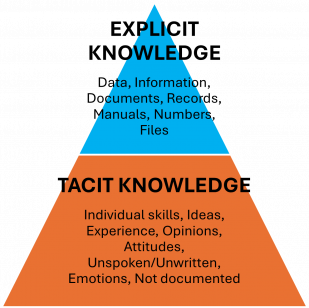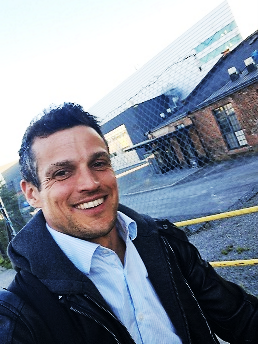Unleashing the Power of Knowledge Management: A Case Study of Wärtsilä Oy

The modern, fast-paced world requires continuous innovation to stay ahead of the curve. But how can organisations ensure continuous learning and adaptation to new challenges? The answer is in an effective Knowledge Management System (KMS). What if companies could seamlessly share and utilize every piece of knowledge across all departments, from daily insights to groundbreaking innovations? This blog post highlights the significance of knowledge management, explores the KMS key drivers and provides insights about Wärtsilä’s KMS drivers case study (Piculin, 2025).
Drivers of Knowledge Management Systems in Multinationals ; A Case Study of Wärtsilä Oy (Link to Theseus: https://urn.fi/URN:NBN:fi:amk-2025051210673)
Why Knowledge Management Matters
Knowledge is not just information (Omotayo, 2015). When structured and shared, it’s the enabler of innovation and efficiency. A Knowledge Management System is constructed around people and knowledge, through processes and technology, designed to facilitate the creation, collection, organisation and storage, use and sharing of knowledge within an organisation. An effective KMS stimulates the creation and collection of personal tacit knowledge and supports its conversion to shareable and documentable explicit knowledge. This is supported by the epistemological cycle, where a combination of socialization, externalization, combination and internalization nurtures organizational explicit knowledge creation from personal tacit knowledge.

The KMS should also integrate the ontological perspective: Ontological cycles drive the ruling, storing and the transfer of knowledge within the organization. To stimulate epistemological and ontological perspectives, the KMS should be custom built on the type of knowledge and people in the organisation, with ad hoc processes and technologies supporting the interaction within these. In the KMS drivers study (2025), Piculin discussed the main enablers and their interaction for a successful KMS within an organization.
These are the organizational culture, the communities of practice, the leadership, people’s learning preferences, incentives, and communication and training. A collaborative, egalitarian and open culture encourages people to share knowledge, especially when leaders continuously promote collaboration and provide an aligned direction toward it. Communities of practice, i.e., social communities where specific experts discuss and share relevant knowledge, help to turn personal, experience-based tacit knowledge into shareable and usable explicit knowledge. Understanding how people prefer to learn (through doing, or reflecting, theory or practical application) is the base for effective knowledge sharing with relevant communication and trainings.
Leadership should apply specific incentives to motivate people to share their knowledge: these should align with personal and organizational values. Altogether, these elements are the KMS foundation, where people and knowledge are the core and processes, and technology are designed to support the knowledge flow.
The Wärtsilä Case Study
For multinational enterprises like Wärtsilä, effective knowledge management can make the difference between leading the market and falling behind. The journey to a robust KMS is not easy, but a step-by-step strategy can completely transform an organisation. Wärtsilä faces unique challenges due to its global presence and diverse departments. Nevertheless, precisely these challenges make the Wärtsilä’s KMS case study particularly compelling. By promoting the collaborative culture and the development of cutting-edge technologies Wärtsilä can transform hidden tacit knowledge into organisational DNA that drives innovation.

A survey assessing the organisational culture, people’s learning and sharing preferences and the current KMS feedback was distributed among Wärtsilä’s Research and Development and Global Technical Service departments. The key findings of the analysis of 187 responses are:
- An egalitarian, collaborative, and risk-taking organisational culture provides fertile ground for effective knowledge sharing. Wärtsilä’s low power distance and equality supports a safe environment for sharing and learning.
- Clear leadership that rewards and values knowledge and its sharing is crucial. Leaders and managers at Wärtsilä are encouraged to promote continuous learning and cross-organisational collaboration.
- Informal social groups of experts - communities of practice - that foster collaboration and innovation, can significantly enhance knowledge creation, collection and sharing.
- Advanced technologies, including Artificial Intelligence, have a significant role in managing and disseminating knowledge. The KMS in Wärtsilä should integrate various systems to ensure seamless access to information.
Curious to Learn More?
Whether you are a business leader, a tech enthusiast or simply curious about knowledge management and organisational dynamics, this thesis offers an innovative perspective on knowledge management. Proposed reading is:
- Omotayo, F. O. (2015) – Knowledge Management as an Important Tool in Organisational Management
- Fidalgo-Blanco, Á., Sein-Echaluce, M. L., & García-Peñalvo, F. (2015) – Epistemological and Ontological Spirals
- Dutta, A., & Rangnekar, S. (2024) – Preference for Teamwork and Communities of Practice
- Boer, N.-I., Berends, H., & van Baalen, P. (2011) – Relational Models for Knowledge Sharing Behaviour
About the Author

Daniel is currently pursuing an MBA in Digital Business and Management at Novia University of Applied Sciences in Vaasa. Originally from Trieste and passionate about sailing, he now resides in Finland, Daniel contributes to Wärtsilä's mission of advancing decarbonization in the marine and energy industries with his leadership, engineering, and problem-solving skills. Through his thesis work, Daniel aims to enhance knowledge management practices at Wärtsilä.
In this blog you'll read posts from students studying for Master of Business Administration, Digital Business and Management, MBA. The writers are responsible for the content and opinions in the blog text.
Digital Business and Management, MBA
Disclaimer: The author(s) are responsible for the facts, any possible omissions, and the accuracy of the content in the blog.The texts have undergone a review, however, the opinions expressed are those of the author and do not necessarily reflect the views of Novia University of Applied Sciences.
Posta din kommentar
Kommentarer
Inga har kommenterat på denna sida ännu